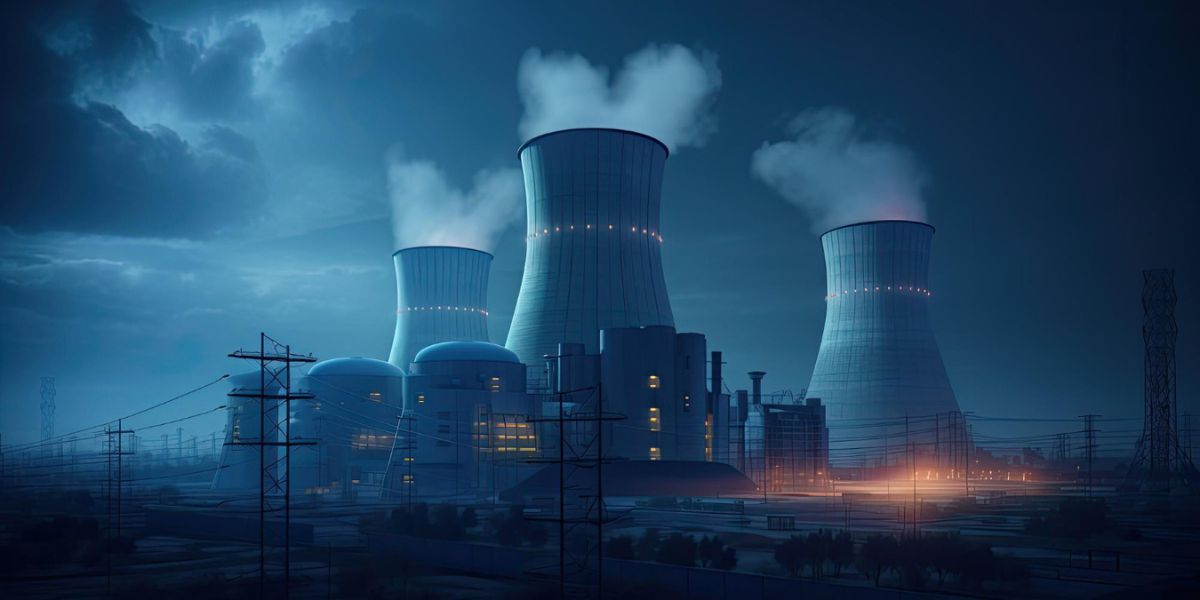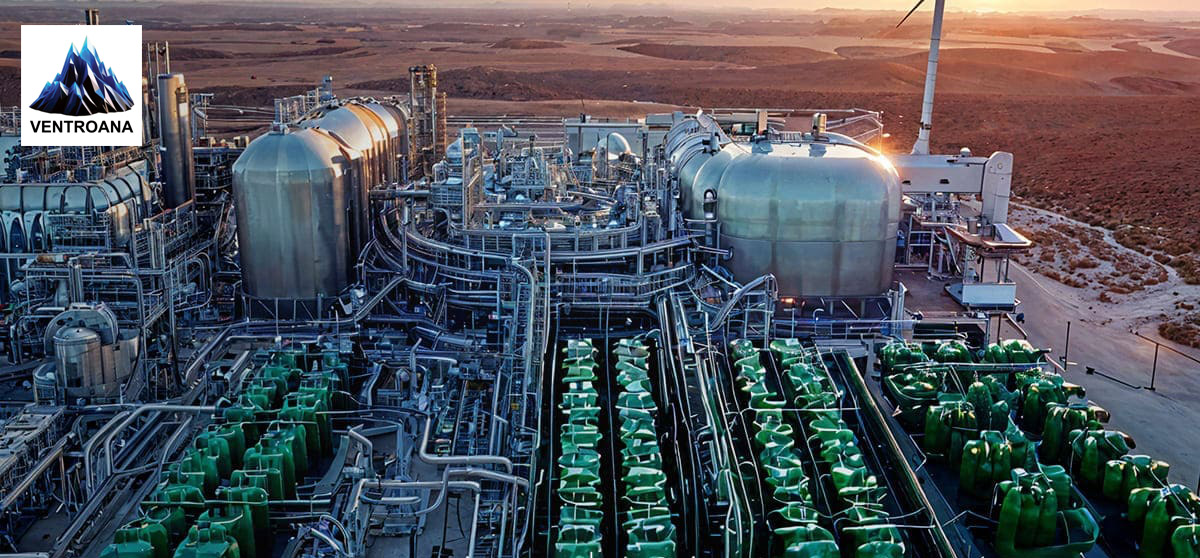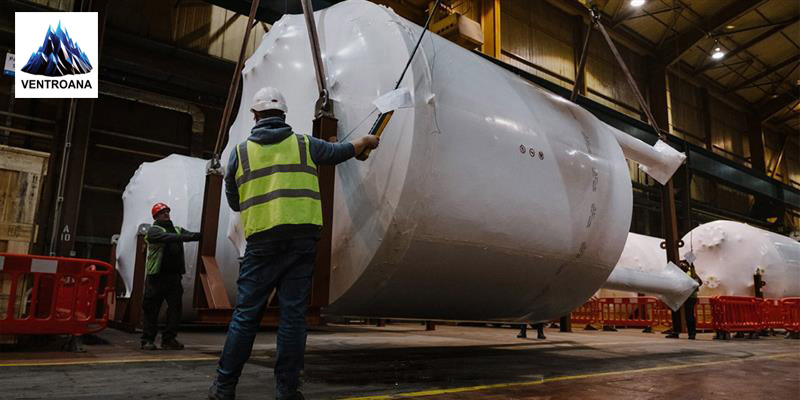Microgrid
February 23, 2024

In the era of rapid technological advancements, artificial intelligence (AI) has emerged as a transformative force across various sectors. One area where AI is making significant strides is in the efficient management of power plant operations.
With the increasing demand for clean and sustainable energy, power plants are under pressure to optimize their processes, reduce costs, and minimize environmental impact.
In this blog, we will explore how AI is revolutionizing power plant operations, enhancing efficiency, and paving the way for a productive future.
The incorporation of artificial intelligence (AI) in power plant operations is now making its way into the power sector, and its potential impact could be crucial.
As time goes on, the challenges associated with this integration can be overcome by transferring knowledge of the power sector to AI software companies. The power sector in developed countries has recently started adopting artificial intelligence and the various technologies associated with it.
These advancements facilitate communication between smart grids, smart meters, and Internet of Things (IoT) devices. By leveraging these technologies, power management of plant operations can be enhanced, efficiency can be improved, and transparency can be increased.
Furthermore, the integration of AI can contribute to the greater utilization of renewable energy sources, thereby promoting a sustainable energy future. AI is indeed playing a key role in efficiently managing power plant operations. Here are some ways in which AI is being utilized:
AI can help power plants reduce their environmental impact by optimizing fuel combustion processes and emission control systems. AI algorithms can analyze data from sensors and control systems to optimize fuel-to-air ratios, reduce emissions, and improve overall energy efficiency. This not only benefits the environment but also helps power plants meet regulatory requirements.
One of the critical challenges in industrial power plant operation is the maintenance of equipment to avoid unexpected breakdowns and costly repairs. Traditional approaches to maintenance are often based on fixed schedules or reactive responses, which can result in unnecessary downtime for preventive action. AI-powered predictive maintenance systems have transformed this landscape by leveraging machine learning algorithms to analyze real-time sensor data. These systems can detect patterns and anomalies, enabling power plant operators to identify potential equipment failures before they occur.
AI can analyze historical energy consumption patterns, weather data, economic indicators, and other relevant variables to forecast energy demand. Accurate demand forecasting enables power plant operators to plan their operations and optimize resource allocation, resulting in cost savings and improved grid stability.
Power plants face the challenge of meeting fluctuating energy demands while ensuring a stable power supply. AI technologies help in optimal load management by analyzing historical and real-time data, weather patterns, and energy consumption patterns. By considering various factors such as weather forecasts, time of day, and seasonality, AI algorithms can predict energy demand with high accuracy. This predictive capability allows power plant operators to optimize load distribution and power generation, ensuring that resources are utilized efficiently. This efficient load management contributes to cost savings, reduces carbon emissions, and enhances the reliability of the power supply.
In an age where sustainability is a top priority, power plants are under increasing pressure to reduce their environmental impact and improve energy efficiency. AI is playing a key role in this regard by optimizing energy consumption and reducing wastage throughout the power generation process. AI algorithms can analyze vast amounts of data from sensors, meters, and other sources to identify energy consumption patterns, detect inefficiencies, and recommend improvements. By continuously monitoring and adjusting operational parameters, AI systems can optimize fuel combustion, turbine operation, and heat recovery.
The modern power grid is a complex network that requires real-time monitoring, control, and coordination to ensure efficient power distribution. AI-powered grid management systems leverage advanced analytics and machine learning to optimize grid performance and enhance grid stability. By analyzing data from smart meters, sensors, and historical consumption patterns, AI enables grid operators to detect and respond to grid faults or malfunctions in real-time, allowing for quick troubleshooting and minimizing downtime. This proactive approach to grid management ensures a reliable power supply, improves grid resilience, and enhances the overall efficiency of power plant operation.
AI can enhance safety in power plant operations by analyzing data from various sources, including sensors, cameras, and historical records. AI algorithms can identify potential safety hazards, detect abnormal operating conditions, and issue operator alerts. This proactive approach enables operators to take timely actions to mitigate risks and ensure the safety of personnel and equipment.
Artificial intelligence is revolutionizing the power plant industry by driving operational efficiency, reducing costs, and promoting sustainable energy practices. AI is transforming power plant operations through predictive maintenance, optimal load management, energy efficiency optimization, and grid management. AI algorithms facilitate energy efficiency optimizations, reducing energy consumption, and lowering carbon emissions. Finally, AI-powered grid management systems enhance the performance and resilience of power grids, ensuring a stable and reliable power supply. By harnessing the power of AI, we can achieve greater energy efficiency, minimize environmental impact, and pave the way for more sustainable and resilient energy infrastructure.
Tags:

Successful Implementation of Green Hydrogen in Power Plants
Discover how green hydrogen revolutionizes power plants with sustainable energy solutions, reducing ...

Driving Innovation and Resilience: Insights from the 10th Annual Energy Supply C...
Gain insights on driving innovation and resilience at the 10th Energy Supply Chain & Procurement Sum...

Understanding EPC Engineering: Key Concepts Explained
Discover the essentials of EPC Engineering, covering contracts, project phases, and roles of EPC con...